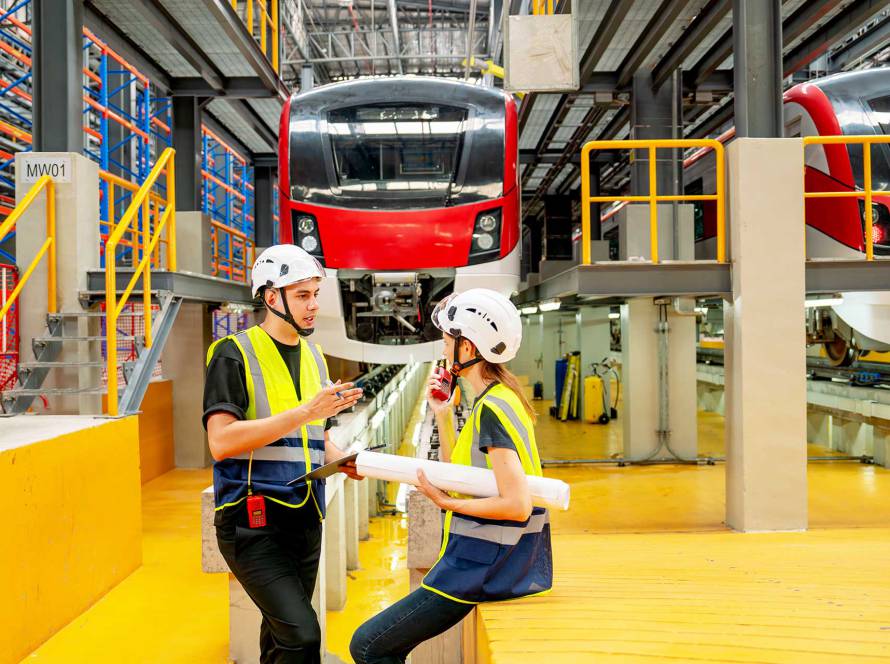The logistics industry is the backbone of global trade, facilitating the seamless movement of goods across borders. However, like any complex system, it faces various challenges that demand swift and innovative solutions. In this blog post, we will explore real-life challenges that the logistics industry has encountered, including the impact of the Suez Canal blockage by the Ever Given shipping vessel and the unprecedented challenges posed by the COVID-19 pandemic. We will also delve into the resilient solutions that emerged to overcome these obstacles and steer the industry towards smoother waters.
-
The Suez Canal Blockage – A Severe Bottleneck
In March 2021, the world watched in awe and concern as the Ever Given, a massive container ship, became wedged in the Suez Canal, one of the most critical maritime trade routes. The blockage disrupted the flow of goods, impacting an estimated 12% of global trade passing through the canal. This incident highlighted the vulnerability of the logistics industry to unforeseen events that can cause significant disruptions.
Impact and Implications:
- Delayed Shipments: Thousands of vessels were stuck on either side of the canal, causing extensive delays in the delivery of goods worldwide.
- Supply Chain Disruptions: Manufacturing and production industries faced raw material shortages, leading to production halts and revenue losses.
- Inflationary Pressures: The delay in goods delivery resulted in higher costs, which were eventually passed on to consumers, contributing to inflationary pressures.
Solution: Collaborative Efforts and Advanced Tugboats
The successful resolution of the Suez Canal blockage demonstrated the power of collaboration and innovative solutions. A team of engineers, tugboat operators, and maritime experts worked tirelessly to free the Ever Given. The use of specialized tugboats and dredging equipment helped to dislodge the ship and reopen the canal.
Furthermore, the incident highlighted the need for advanced navigational technology and contingency plans. The canal authorities have since been proactive in implementing measures to prevent future blockages, including improved traffic management and increased investment in canal infrastructure.
-
COVID-19 Pandemic – A Global Disruption
The outbreak of the COVID-19 pandemic in early 2020 unleashed a series of challenges that severely tested the resilience of the logistics industry. As countries implemented lockdowns and travel restrictions, airfreight operations were halted, and the burden of keeping the world running fell heavily on shipping lines. The sudden surge in demand for essential goods, medical supplies, and e-commerce shipments strained existing logistics capacities.
Impact and Implications:
- Airfreight Disruptions: The suspension of passenger flights led to a significant reduction in available cargo space, resulting in soaring airfreight costs and delays.
- Port Congestion: Ports faced operational challenges due to reduced workforce, social distancing measures, and increased import volumes, leading to port congestion and longer turnaround times.
- Container Shortages: The pandemic disrupted the balance of container availability, causing a shortage in certain regions, further exacerbating freight costs.
Solution: Adaptation and Resilience
The logistics industry demonstrated remarkable adaptability during the pandemic, as it quickly implemented solutions to mitigate the challenges posed by COVID-19.
- Priority for Essential Goods: Shipping lines and logistics providers prioritized the transportation of essential goods such as medical supplies, PPE, and vaccines to ensure the timely delivery of critical items.
- Agile Supply Chains: Many businesses adopted agile supply chain strategies, diversifying sourcing locations, and embracing digital solutions to optimize operations and respond swiftly to changing demands.
- Emphasis on Sustainability: Amid the pandemic, there was a growing focus on sustainability and eco-friendly practices, leading to more efficient use of resources and greener transportation methods.
Gradual Return to Normalcy
As we progress into 2023, the logistics industry is gradually recovering from the impact of the pandemic. Airfreight operations have resumed, although some changes in consumer behavior, such as increased e-commerce reliance, have altered the logistics landscape permanently.
Freight rates have stabilized, and shipping lines are adjusting their operations to adapt to the new normal. Furthermore, the lessons learned from the challenges posed by the Suez Canal blockage and the COVID-19 pandemic have prompted the industry to invest in technologies, enhance communication, and collaborate more closely with other stakeholders to build a more robust and efficient global logistics network.
Conclusion
The logistics industry is no stranger to challenges, and history has shown that it possesses the adaptability and resilience required to overcome even the most formidable obstacles. The Suez Canal blockage and the disruptions caused by the COVID-19 pandemic were significant tests, but they also served as catalysts for positive change.
As we navigate the stormy seas of trade, it is crucial for companies like Sharp Blue PTY LTD to stay proactive and innovative, leveraging technology and collaboration to address challenges head-on. By doing so, we can continue to offer our clients reliable and efficient freight forwarding services while playing a vital role in driving global trade toward a brighter and more prosperous future.


